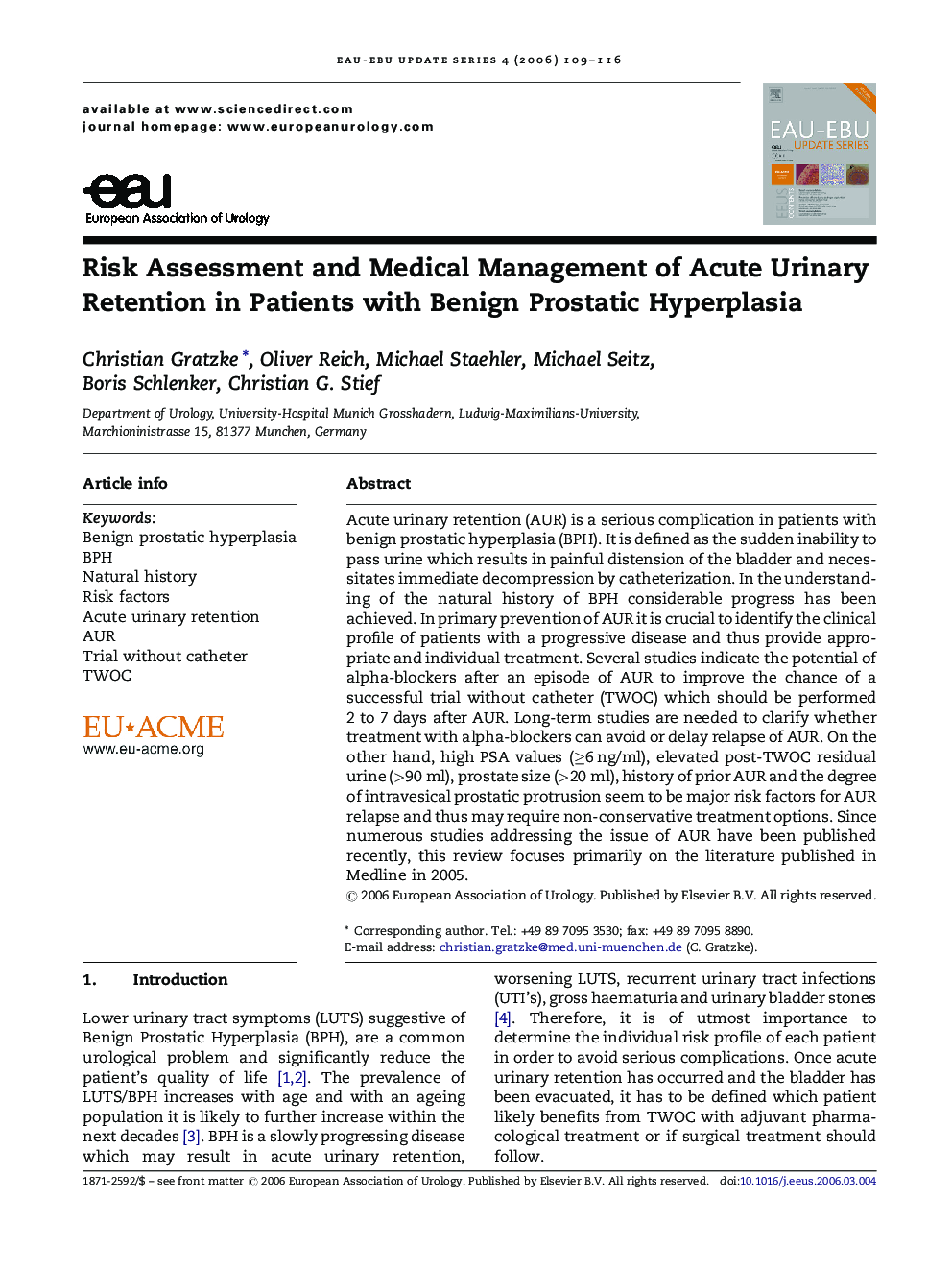| Article ID | Journal | Published Year | Pages | File Type |
|---|---|---|---|---|
| 3918897 | EAU-EBU Update Series | 2006 | 8 Pages |
Acute urinary retention (AUR) is a serious complication in patients with benign prostatic hyperplasia (BPH). It is defined as the sudden inability to pass urine which results in painful distension of the bladder and necessitates immediate decompression by catheterization. In the understanding of the natural history of BPH considerable progress has been achieved. In primary prevention of AUR it is crucial to identify the clinical profile of patients with a progressive disease and thus provide appropriate and individual treatment. Several studies indicate the potential of alpha-blockers after an episode of AUR to improve the chance of a successful trial without catheter (TWOC) which should be performed 2 to 7 days after AUR. Long-term studies are needed to clarify whether treatment with alpha-blockers can avoid or delay relapse of AUR. On the other hand, high PSA values (≥6 ng/ml), elevated post-TWOC residual urine (>90 ml), prostate size (>20 ml), history of prior AUR and the degree of intravesical prostatic protrusion seem to be major risk factors for AUR relapse and thus may require non-conservative treatment options. Since numerous studies addressing the issue of AUR have been published recently, this review focuses primarily on the literature published in Medline in 2005.
